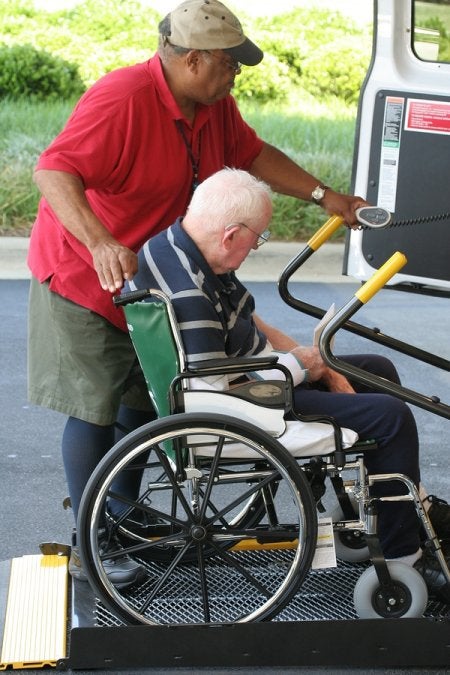-
Designing an In-Home Care Plan for a Parent with Alzheimer’s
Alzheimer’s disease and other forms of dementia place a considerable burden on families. Elder care at home is usually preferred, but families often lack the time to provide 24/7 care and monitoring. Home health aides in Memphis can bridge the gap between an aging parent’s needs and a family caregiver’s capabilities. If your parent has been diagnosed with Alzheimer’s, it’s time to have a conversation with an assisted living provider.

Identify Needs
Every elderly parent with Alzheimer’s has unique needs, usually depending on the stage of Alzheimer’s they are dealing with. Before designing your parent’s in-home care plan, it’s a good idea to meet with the family doctor to discuss your parent’s specific needs . The doctor may recommend that your parent stop driving if he or she hasn’t stopped already. Other recommendations may include the following:
- Starting new medications
- Making home modifications for fall prevention
- Adding safety devices (e.g., automatic stove turn-offs)
- Wearing a medical alert button
- Receiving assistance with meal preparation and feeding
- Enjoying safe physical exercise
- Engaging in daily cognitive stimulation
Speak with Family Members
Once you have a list of all of your parent’s needs, it’s time to have a talk with other family members about arranging in-home care for your parent. Although an in-home caregiver can provide nearly all of the services your parent may require, most families will still want to be involved with the care plan in some way. Coordinate with other family members who want to provide occasional care. Your sister might take mom or dad for a weekly walk in the park, for instance, while your brother might volunteer to make a couple of meals each week. https://mostbet-games.net/hy/
Ease the Transition
Significant change isn’t easy for many people, particularly aging parents with Alzheimer’s disease. If your parent is a little unsure about the prospect of having a home health aide, it’s best to make the transition gradually if possible. Your parent may want you to be present during the first few visits. As your parent becomes increasingly comfortable with the idea of receiving professional care, the home health aide can take on more tasks without your presence.
-
Supporting Your Healing After Surgery
It’s often thought that assisted living services are primarily used on a long-term basis, but in fact, many individuals can benefit from temporary elder care from a caregiver agency near Memphis. To support your recovery after surgery, Caring Companions provides transitioning home care , including healthy meal preparation.
When you watch this video, you’ll learn about the types of foods that can best support your recovery after surgery. You can boost your immune system by choosing oranges, kiwis, and strawberries for the extra vitamin C. Your immune system also needs plenty of lean protein from sources like low-fat dairy products, poultry, fish, and nuts. It’s important to eat enough fiber after surgery, since prescription painkillers often cause constipation. Old-fashioned rolled oats and prunes are excellent sources of fiber.
-
Caregiver Stress 101
Providing elder care to an aging parent brings significant challenges to a family. Caregiver stress is a term that refers to the physical and emotional challenges that can cause a family caregiver to feel overwhelmed and be more susceptible to ailments. It’s important to take caregiver stress seriously and to be proactive about dealing with it. Coping with the challenges of elder care is never easy, but respite care delivered by home health agencies in Memphis can help you tend to your loved one’s needs, as well as your own.

Physical Ailments
The stress of family caregiving depresses the immune system and leaves individuals more vulnerable to physical health problems. If you’re like most family caregivers, you probably feel exhausted all the time, yet have trouble falling or staying asleep. You may unintentionally gain or lose weight, fail to eat a balanced diet, and neglect to exercise. You may catch colds more easily and suffer from frequent headaches. If you must lift your aging relative, you’ll likely experience lower back pain that may become chronic.
Cognitive Impairments
Chronic and severe stress can compromise one’s mental clarity . You may find it difficult to concentrate on work or even on leisure activities, if you still have time for these now and then. Your performance at work may decline and you might have trouble helping the kids with their homework. You may constantly forget things and you might have trouble with complex conversations.
Emotional Challenges
Caregiver stress can cause a wide range of emotional problems. It’s normal for family caregivers to sometimes experience anger. You may feel angry toward your aging loved one, despite knowing that he or she didn’t intentionally create these challenges and despite continuing to love your relative. You may feel anger toward other family members if you feel they haven’t given you enough help. Anxiety, depression, irritability, and social withdrawal are other common emotional challenges.
Proactive Strategies
Caregiver stress is practically inevitable for any family member who is trying to juggle the demands of elder care, work, kids, and personal needs. It simply isn’t possible to do everything by yourself, nor should you have to. Respite care is available from home health agencies. This is temporary, in-home care that lets you take a step back while still ensuring that your aging relative gets the help he or she needs. Use your time to go on a weekend get-away or simply to catch up on your responsibilities.
-
Why Do Cancer Patients Need Transportation Assistance?
Unless a close family member has been diagnosed with cancer, it is often difficult for individuals to fully grasp the extent of the needs of these patients. Quite often, families dealing with cancer discover that they require in-home care provided by Caring Companions in Memphis. An assisted living provider can help cancer patients with a wide range of needs, including transportation to the dozens of doctor’s appointments that follow the diagnosis. Cancer patients may have multiple appointments in just one week for medical testing, oncology consultations, injections, and chemotherapy. If they are going through a round of radiation therapy, they will need to get to the radiation therapy clinic every day.
It’s difficult for families to meet the many demands of cancer treatment. It is often necessary to arrange transportation from an assisted living provider because cancer patients cannot drive themselves to and from appointments for several reasons. Patients are usually taking powerful painkillers, which prevents them from driving. They are also likely to experience debilitating side effects from cancer and its treatment. In some cases, the patient may have significant mobility deficits and cannot get around the house by him- or herself, let alone drive a vehicle. But with transportation assistance, cancer patients can safely get to where they need to go for their care.

